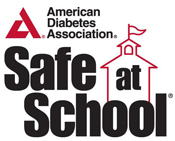


The California School Diabetes Care Lawsuit: Questions And Answers For California Parents And Guardians
Insulin Administration in California Schools
What does the California Supreme Court’s recent decision mean for students with diabetes and their families?
On August 12, 2013, the California Supreme Court issued a decision about who is allowed under state law to administer insulin to students.In that decision, the Court clarified that California law allows people who aren’t licensed nurses or doctors to give insulin and other prescription medications to students with diabetes and other health conditions in California’s public schools.The American Diabetes Association and Disability Rights Education and Defense Fund (DREDF) are very pleased with this decision and believe it will help California children with diabetes get the insulin they need to be healthy and safe at school. (State law already clearly permitted non-medical school staff members to administer glucagon and perform blood glucose monitoring, among other types of diabetes care.)
This decision is a major victory for students with diabetes and their families, and should help you feel more confident that your local public school will be able to meet your child’s needs when a nurse is not available. However, because this decision represents a final determination of California law after years of disputes, and may mean your school has to make changes, there may be some confusion over the coming weeks and months.
This document tries to answer some of the questions you as parents may have about what to do.This document also explains some of the other rights that children have to diabetes care and services under
federal laws.
What is the California diabetes school care lawsuit, and why was it filed?
In 2007, several nursing organizations sued the California Department of Education because they believed that California law did not allow school staff such as teachers, counselors, administrators and health aides to administer insulin to students. They wanted a legal ruling that allowed only nurses to give students insulin when these students could not give insulin to themselves. The American Diabetes Association got involved in this lawsuit to defend the rights of California students with diabetes and to protect a settlement on the same issue in an earlier case.
The case that was decided at the California Supreme Court grew from an earlier case that the Association and four children with diabetes brought in 2005 against the California Department of Education and two school districts. That first lawsuit was filed because many school districts in California refused to allow any school staff who were not licensed nurses to give insulin.It was settled in 2007. In the second lawsuit, brought by the nursing groups soon after the settlement, two lower courts had ruled against the Association before the California Supreme Court decided that state law allows school staff to administer insulin.
Throughout the lawsuits the Association has been represented by Disability Rights Education and Defense Fund (DREDF) and the law firm of Reed Smith LLP.
What are the details of the California Supreme Court’s ruling?
The California Supreme Court’s decision overturns a lower court’s ruling that state law did not allow school staff to administer insulin to students with diabetes. The Nursing Practice Act prohibits anyone from performing a nursing task without being a registered nurse. However, the court said that an exception to that law allows school staff to administer insulin because they are carrying out the orders of a physician by following his or her directions in giving the medication, as long as they do not “assume to practice” as a nurse (by using a title or doing things that would make others think that they are a nurse). Staff such as teachers and counselors who agree to administer insulin do not assume to practice as a nurse just because they make themselves available to care for your child. The court also said that the California Education Code allows school staff to give insulin to students because it allows them to assist with medication administration.
Does my child’s school have to administer insulin to my child?
Yes. The California Supreme Court noted that federal law requires schools to administer insulin and provide other diabetes care to students in order to provide a free appropriate public education required by federal law.(More information on the requirements of federal law is provided below). The school has to provide diabetes care services at no cost to you. In other words, the school cannot require you to pay for someone to administer insulin, nor can they require or pressure you to provide the care yourself (although you can be required to provide needed diabetes supplies and medications at your own cost). Schools have some flexibility in deciding which school staff will administer insulin to your child, but it is your right to have school personnel administer insulin to your child if he or she needs it
based on the treating physician’s orders.
Which school personnel can administer insulin to my child?
Any school staff person can agree to provide diabetes care including insulin administration. Teachers, counselors, aides, office staff, principals and others are all allowed under state law to administer insulin. These school staff can also help your child to give his or her own insulin (by verifying the dose or by watching your child give an injection or press the buttons on an insulin pump). California law also permits insulin to be administered by school nurses (and other licensed health care professionals), students who are self-administering, parents, family members or their friends.
Is it safe for school staff to administer insulin to my child?
Yes. Nearly all diabetes care today is done by people who don’t have a nursing or medical license. Every day millions of doses of insulin are safely given across the country by parents, siblings, family friends, babysitters and school staff. Diabetes experts including patient advocacy groups like ADA, JDRF, and Children with Diabetes; government entities like the National Institutes of Health, Centers for Disease Control, and U.S. Department of Education; and health care professional societies all agree that insulin can—and should—be safely administered by school staff when a nurse isn’t available.
How will my school find staff members who will administer insulin?
Many schools already have staff members who work as health aides or who regularly perform health tasks for children. For example, there may already be a staff person at your school who is performing diabetes care, such as blood glucose monitoring or administering glucagon, for your child or another child with diabetes. This person may be an ideal candidate to administer insulin. Your school should also ask other staff if they are willing to be trained. In most cases, staff will come forward—many of them will have a family member with diabetes or other experience with the disease and will be more than willing to help. Your school should not force anyone to administer insulin to your child—neither you nor the staff person will be comfortable with that arrangement, and your child may be put at risk. But the school is responsible for finding someone to give insulin to your child. As noted above, you cannot be forced to take on this responsibility.
How will school staff be trained to administer insulin?
Itis up to the school to determine who will provide training to staff who will administer insulin. Normally this training should be provided by a health care professional such as a school nurse or a certified diabetes educator, but in some cases the school may allow you to do all or part of the training. Numerous resources are available to districts to help with training. In some areas, hospitals or health care providers give group trainings. One of the nurses or educators who works with your child’s endocrinology practice may also be willing to provide training. While some people may be willing to provide training for free, the school will often have to pay a small amount for the training, and cannot refuse to train on that basis.
Does the court ruling mean schools won’t hire or retain school nurses?
Schools have always had flexibility in determining which staff to employ to provide health services and meet legal obligations to students with disabilities. There is no requirement that your school or school district have any nurses on staff; some districts have no nurses at all. However, the court’s ruling should not mean fewer nurses in the schools. The Association supports the important role that school nurses play in coordinating and providing care for all students, not just those with diabetes. Also, the school has an obligation to provide adequate care to your child and should not eliminate nursing positions. It is best if a school nurse is involved in the care of your child, training school staff to provide diabetes care and supervising them in this task.
What if my school refuses to train anyone or has a policy that insulin can only be administered by a nurse?
The Supreme Court’s decision does not require your school to train non-medical school staff; it simply gives schools another option to provide diabetes care. However, federal and state law require that your child receive the insulin he or she needs in order to be safe at school. A school cannot use its policy on who can administer medication as an excuse to deny your child access to insulin.Most students with diabetes will require insulin one or more times during the school day to cover meals and snacks. They also need someone available at all times to give insulin if they are experiencing hyperglycemia. A school district could choose to have a nurse present at the school full time (including during all extracurricular activities), and to also have backup nursing care available in the event of a field trip or the absence of the nurse.
However, training non-medical school staff is a much more practical solution. You need to stand firm that your child’s medical orders must be honored and that your child is entitled to have staff capable of administering insulin available whenever insulin might be needed. It is very important that insulin be given at the times specified in the treating physician’s orders. For example, if insulin needs to be given within 15 minutes before lunch, giving it 30 minutes before or 15 minutes after lunch may lead to unsafe fluctuations in blood glucose levels. Your child has the right to receive insulin when needed based on the orders, and delays resulting from the lack of nursing coverage and the failure to provide trained staff are not acceptable. Your school may pressure you to agree that nurse coverage during certain times, without anyone else trained, is sufficient. Or the school may ask you to take on the responsibility for providing diabetes care because of the lack of nurses. But you have the right to have the school provide this care and you should not agree to anything else
unless you are comfortable doing so.
What federal laws protect my child?
Students with disabilities, including those with diabetes, have a right to a “free appropriate public education” without discrimination. These rights are guaranteed by laws such as Section 504 of the Rehabilitation Act (Section 504), the Individuals with Disabilities Education Act (IDEA), and the Americans with Disabilities Act. California state law also protects students with diabetes from discrimination. Every student with diabetes has a right to be evaluated to determine his or her eligibility for services under Section 504 and/or IDEA, as appropriate.
Each of the above laws has a definition of what it means to have a disability, and your child must meet that definition in order to have rights under the law. Diabetes should always be considered a disability under Section 504 and the Americans with Disabilities Act because it limits the functioning of the child’s endocrine system. Your child can be covered by Section 504 even if he or she is succeeding academically and making good grades. Although schools sometimes think that there must be a demonstration of poor grades or lack of academic progress to be covered under Section 504, this is not true.
IDEA protects students who need special education (specially designed instruction) and related services. A student with diabetes may be eligible under IDEA and entitled to an “Individualized Education Program” (IEP) because, for example, high or low blood glucose levels can cause symptoms giving him/her limited strength or limited alertness, and can cause chronic or acute health problems that affect his or her educational performance. Fluctuations in blood glucose levels may have an adverse effect on education in a variety of ways, including effects on concentration, comprehension and energy levels. The IEP team must make an individual determination as to whether, notwithstanding the child’s progress in a course or grade, he or she needs special education and related services. In addition, a student with diabetes may be covered under IDEA if he or she has another disability that adversely impacts learning.
The services and accommodations that your child needs for his or her diabetes should be documented in a written plan (either a 504 Plan or an IEP). School personnel such as the 504/IDEA coordinator, school nurse, guidance counselor and key teachers should work with you to develop this plan, which incorporates the medical orders provided by your child’s treating physician (described below). Download a copy of a sample 504 plan developed by ADA and DREDF:
- Download the Model 504 Plan as a PDF
- Download the Model 504 Plan as a Word document
- Download the Model 504 Plan as a PDF in Spanish
You have a right to meet with school personnel to develop such a plan, and to bring an advocate, attorney and/or expert to this meeting to better explain your child’s diabetes management needs. The school should develop the IEP or 504 Plan with your input. You do not have to sign the plan if you disagree with it (to begin implementation, you can sign the parts you agree with but not those parts that need further discussion).
What diabetes health related services must my child’s school provide?
Federal and state laws require school districts to provide a qualifying student with diabetes with the health care services that student needs in order to attend school safely and to participate in all school-sponsored activities. These services can include diabetes care tasks such as:
- Checking blood glucose
- Administering insulin
- Recognizing and treating high blood glucose levels (hyperglycemia) and low blood glucose levels (hypoglycemia)
- Administering glucagon
- Monitoring a student’s meals, snacks, and level of physical activity.
Decisions about what health care services your child will receive at school should be based on your child’s treating physician’s written orders. That is, your treating physician needs to provide a treatment plan that covers your child’s specific needs (including medication dosages and target blood glucose values) and ability to self-manage his or her diabetes, which the school should implement. Download sample of such a plan (called a Diabetes Medical Management Plan). Your school district may have another form that it requires you to use for this purpose, or your child’s treating physician may prefer a different form. School nurses and other trained school district personnel should implement the plan and provide the care that your child needs while at school or participating in school–sponsored activities (including bus travel, extracurricular activities, field trips, and similar activities). District personnel will perform the task, assist your child in performing the task, or allow your child to perform the task depending upon his or her level of competence in self-managing diabetes.
It is usually very helpful to provide school personnel with general information about diabetes and the needs and rights of children with diabetes while at school.An excellent source for such information is the National Diabetes Education Program’s Helping the Student with Diabetes Succeed: A Guide for School Personnel (PDF) This guide was developed by the federal government (Centers for Disease Control, National Institutes of Health, and U.S. Department of Education) and leading diabetes and school organizations.
Where will diabetes care be provided?
Diabetes care should be provided wherever your child is on campus, on the school bus, and at off-campus activities. If you request it and your treating physician authorizes it, your child will be permitted to check his or her blood glucose level and to otherwise provide diabetes self-care in the classroom, in any area of the school or school grounds, during any school–related activity, and, upon specific request by you, in a private location.
Can my child be denied needed services because of a district policy that applies to all students with diabetes?
Policies that don’t allow individual evaluation of your child’s educational and health related service needs (for example, policies stating that blood glucose monitoring is never allowed in the classroom, school personnel will not administer insulin and/or glucagon, or that children with diabetes must go to a particular school) are not permitted. Also, a school or district may not have a policy or general practice that insulin or glucagon administration, or other
diabetes–related health care services, will only be provided by district personnel at certain schools in the district, or that your child must always leave the classroom to receive needed care. It is your right to have decisions made based on your child’s individual needs, not on general district policies or the financial burden of providing care.
Which school personnel can administer glucagon to my child?
California law specifically provides that glucagon may be administered by trained school personnel who are not licensed health care professionals, as well as by school nurses and other licensed health care professionals, so long as you request this in writing and glucagon is included in the written orders of your child’s treating
physician.
Can my child be forced to go to a different school to get diabetes care?
No. School placement decisions may not be based on the unwillingness of a school or district to provide needed care for diabetes at the school your child would otherwise attend. A school or district may not require you to agree to send your child to any particular school as a condition of administering medications or assisting your child in the administration of medication at school.
Will I have to sign a waiver of liability before my child can receive needed care?
The school cannot require you to waive any rights, hold the school district harmless, or agree to any particular placement or services as a condition of school personnel providing care to your child.
What academic services and modifications is my child entitled to receive?
Your child may need academic services and adjustments because of diabetes, such as changes in the time of physical education class, changes to the normal school day schedule (breaks to treat hypoglycemia or hyperglycemia, changes in times for exams, food intake, assignment due dates, etc.).These services should also be documented in a Section 504 Plan or IEP, as discussed above.
What should I do to make sure my child receives needed care?
Here are some suggestions for working with your health care provider and your school to help ensure that school personnel understand your child’s diabetes and provide the care he or she needs, and to avoid misunderstanding and disputes between you and the school:
- Make sure you have updated and accurate orders or Diabetes Medical Management Plan from your child’s treating physician that include details about all care your child needs. If your child needs school staff to administer insulin, make sure the orders specify in detail when insulin is to be administered and how to calculate the proper dose. The orders should be clear that insulin may be needed both at predictable times (like meals and snacks) and unpredictable times (to treat severe hyperglycemia). It may also be helpful for the orders to state specifically that your physician approves letting non–medical school staff administer your child’s insulin;
- Provide your school with general information about diabetes and the best model of school diabetes care using resources
- such as the NDEP Guide mentioned earlier and the materials and information from ADA’s website.
- If you have not already done so, request that your child be evaluated for eligibility under Section 504 and/or IDEA. These laws give you and your child important rights and protections, and you should make sure you get those protections;
- Work with your school to develop a written 504 Plan or IEP so that everyone knows ahead of time what he or she is responsible for doing;
- Make all requests for evaluations and specific services in writing to your child’s school principal (including but not limited to requests for insulin administration services). Request responses in writing, especially if there is disagreement over what services are to be provided;
- If you receive an unfavorable response from your child’s school, talk to higher level district personnel (such as the superintendent or assistant superintendent) and your school board members (who are elected officials in most communities). Request a copy of all applicable district policies, procedures and forms.
You have the right to file a complaint about your school’s failure to provide adequate diabetes care with the U.S. Department of Education’s Office for Civil Rights or with the California Department of Education. This process can be time consuming, but may help resolve your issues. You should take the steps outlined above before considering filing a complaint, to make sure the school is aware of your rights and its obligations and has all needed information to make a decision on providing care. If you are having difficulty getting your child the services he or she needs, or are interested in filing a complaint, the American Diabetes Association can help. You can get resources on school issues and request to speak to one of the Association’s Legal Advocates by calling the Association at 1-800-DIABETES.

